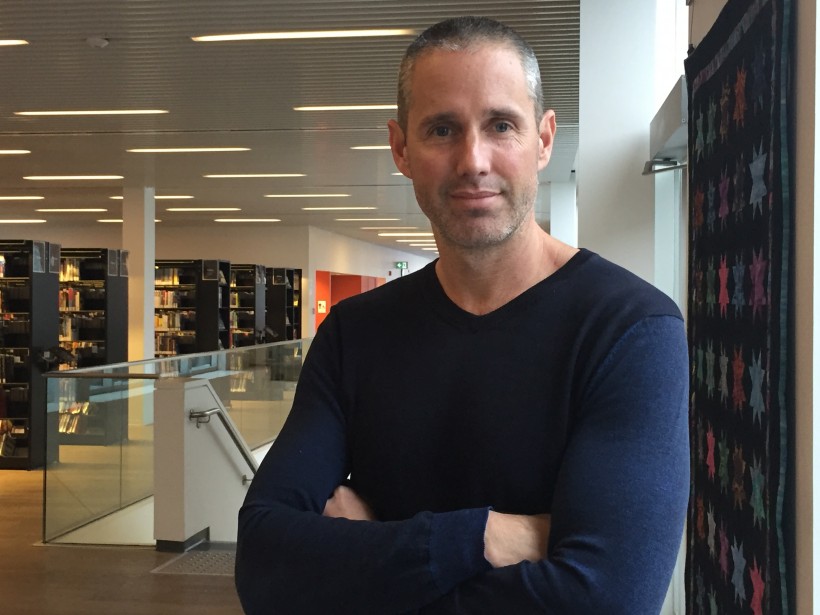One of the more interesting and unheralded developments in the Atlantic Canadian Business Community recently is the ascent of parallel entrepreneurs.
A parallel entrepreneur is a founder or co-founder who develops multiple companies at the same time, as opposed to a serial entrepreneur, who starts a company, exits it, then starts another.
Mentors and gurus tend to advise against launching more than one company at a time because it’s hard enough to oversee just one enterprise, let alone a bunch of them. It takes a rare person – complemented by a strong team – to be a parallel entrepreneur.
As we’ve been working on the 2022 Atlantic Canada Startup Data report, we’ve found a few founders that are not only leading multiple companies but thriving at it. Another thing we’ve noticed is that they tend to avoid the spotlight. People we’ve spoken to about this article say there are more parallel entrepreneurs out there – they just prefer to build their companies on the QT.
Here are the best examples of parallel entrepreneurs that we could find:
Marc St-Onge
Companies: Bend Beauty, SmallFood, and Aycoutay Technologies
St-Onge showed he was an entrepreneur to be reckoned with in 2015, when he sold his natural beauty products company Ascenta to German-owned Nature’s Way for an undisclosed sum. In that transaction, St-Onge hung on to one part of the business, the high-end skin care company Bend Beauty, which he’d spun out of research the company had conducted with Dal. Bend Beauty is still going strong.
In 2017, St-Onge and a co-founder started another company called Aycoutay Technologies, which developed a device to track a person's wellbeing. It captures and analyzes meaningful data about their health in such facets as digestion, neurology, cardiovascular, hormones, mood and energy. The company was a semi-finalist in last year’s BioInnovation Challenge.
He then followed up with another company called Smallfood, which is developing protein-based ingredients for the food and animal feed industries, manufactured via industrial-scale algae fermentation. The company won almost $100,000 in funding from the Canadian Food Innovation Network earlier this year.
In the past month, Smallfood and a Toronto collaborator were named one of six finalists in the US$15 million XPRIZE Feed the Next Billion competition.
Tim Haig
Companies: Valent Low-Carbon Technologies and Mara Renewables.
Billionaire John Risley is heavily involved with both these companies, which are producing goods from algae – nutritional products in the case of Mara and biofuels for Valent. Haig is the Executive Chairman of Mara, which is the better known of the two thanks to its $39.5 million funding round last year. And he is the CEO of Halifax- and Toronto-based Valent Low-Carbon Technologies. Its execs have never agreed to an interview with us, but public disclosures show it has raised at least $180 million. Its two main investors appear to be Risley and the Richardson family of Manitoba (who last teamed up to build Ocean Nutrition Canada, which exited for $580 million).
Valent led the largest-ever Ocean Supercluster project, a $65 million initiative to develop biofuels for marine vessels. Announced in 2022, the members of this project received $8 million in non-dilutive funding from the Ocean Supercluster and Sustainable Development Technology Canada. The consortium included Barrie, Ont.-based FORGE Hydrocarbons, in which Haig is also a senior executive.
Valent was involved in a second Supercluster project awarded in 2023 – a $6.6 million project to develop a fuel supply depot.
Daniel Boyd
Companies: ABK Biomedical, IR-Scientific, and ClearDynamic
Boyd is the type of charming raconteur that his native Ireland is famous for, and he’s renowned at Dalhousie University, where he teaches, for the “little red book” in which he jots down his startup ideas. In his LinkedIn profile he describes himself as a “holder of 50+ patents worldwide and founder of three successful companies with an aggregated net present value >$500M.”
He is best-known as the co-founder (along with Robert Abraham and Sharon Kehoe) of ABK Biomedical, which makes a range of products used in the treatment of cancer. ABK last year closed a US$30 million funding round – the exact same amount as the round it closed in 2019.
Another company in Boyd’s portfolio that is making headway is IR Scientific, which is engineering biomaterials suited to a variety of applications in oral health. Last year, the company received more than $800,000 in non-dilutive funding from the Atlantic Canada Opportunities Agency as it prepared for clinical trials.
The third successful company in the Boyd camp is ClearDynamic, which in December received a loan of $948,750 from ACOA. The money was to be used to assess the feasibility of its system to treat joint pain by injecting tiny particles of glass into a patient’s bloodstream.










